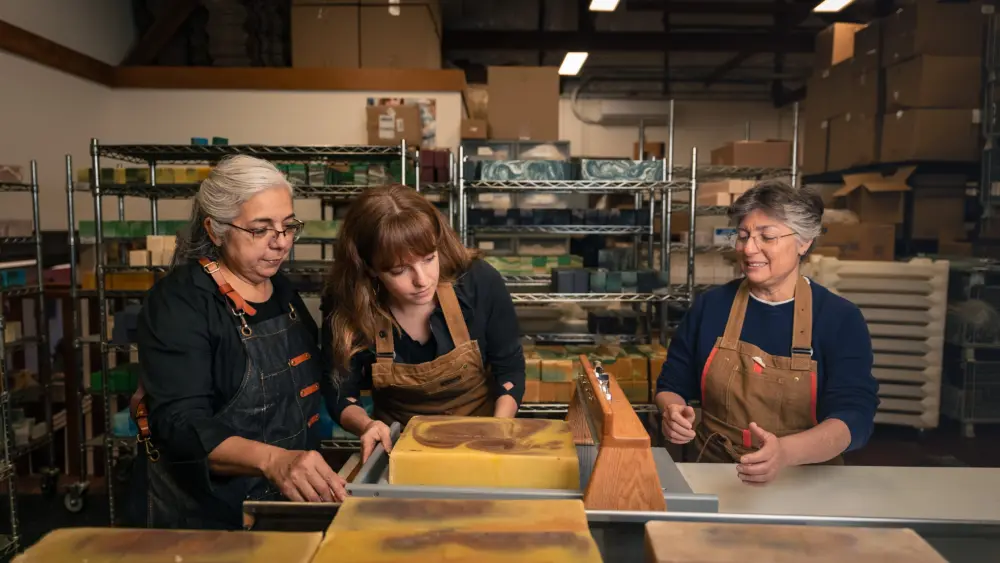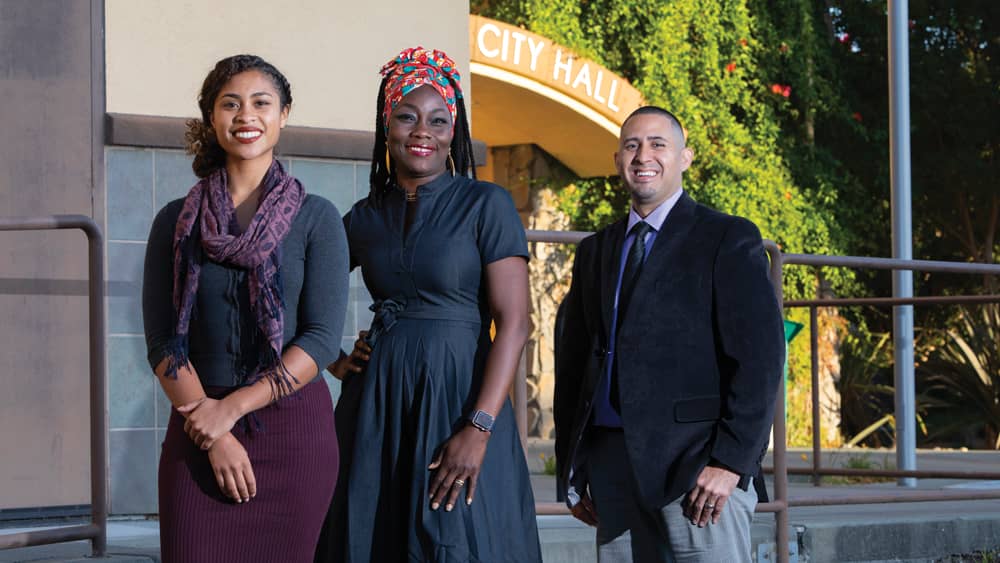
Immediately following Floyd’s death, a racial justice movement began last summer. Many people took to the streets to protest against police brutality. Protesters wanted to make a statement that what happened to George Floyd can happen anywhere and that it’s time for law enforcement to take accountability for their actions and consider how other communities handle similar occurrences. According to a Pew Research poll from June 2020, the people who protested were between the ages of 18 to 49. For those who chose not to protest, they found other ways to help make a change, especially in their respective communities. For three Sonoma County government officials, helping others through their positions with their respective city councils has not only provided them with a voice but also allowed them to contribute new ideas for making positive changes in their respective communities.
Jackie Elward
Vice Mayor
Rohnert Park (Council District 4)
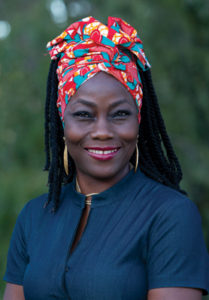
Although Elward works as a teacher’s assistant at the Santa Rosa French-American Charter School, she says that giving of her time is priceless. “It fulfills me as a human to know that I am changing someone’s life for the better, knowing that there’s no price. It’s priceless,” says Elward. “Seeing the joy on people’s faces, bringing hope to people, bringing peace to people who have no peace. It fulfills my dream and makes me feel whole.”
In 2012, Elward, her husband, Ryan, and their three children moved to Rohnert Park. Prior to moving there, she and her family had traveled to the “Friendly City” numerous times before visiting her in-laws while spending plenty of holidays there. When they were looking into buying a home, the obvious choice was to move to Rohnert Park because of their love for the city. “We fell in love with the city and we love the fact that the city had each section with a park, a community pool…a family-friendly environment.”
What inspired Elward to run for Rohnert Park City Council? The main reasons were representation, she says, since she didn’t see anyone who looked like her. She wanted to bring unity. “There were people who didn’t look like me. There are people who had a different voice who felt their voice wasn’t being heard,” says Elward. “We need everyone to have a seat at the table. By bringing the voice of workers, unions, the voice of African Americans, and the voice of Latinos, the voice of anyone on the table, it’s very powerful.” She also aspires to leave behind a legacy of unity when she is no longer on the city council.
As a mother of two daughters and a son, Elward remembers when her young son (now 15 years old) was always asking why no one looked like him. Many times I couldn’t answer his question, she says, but it started making me view things in a different way. She knew something needed to be done and that change needed to happen. “There isn’t anyone who looks like him here and there isn’t anyone that talks like him here, so what can we do to bring that diversity into our council?” What also persuaded her to take action and run for the city council was the death of Floyd. She was taken aback when neither the City of Rohnert Park nor its police department didn’t make any attempt to acknowledge or discuss the death of Floyd. “When George Floyd died, you know at the time there was nothing that the city said about his death. And for a parent who is raising black children, it traumatized me,” says Elward. For two months, I couldn’t sleep, she says and decided that if I want to see the change, then I would have to be the person to bring that change.
As the first Black immigrant and female-elected official in the history of Rohnert Park, it has brought out some positive support and communication between Elward and her constituents. However, it’s also brought with it some unwarranted, negative moments. In March, she was the subject of a verbal attack by a constituent when she supported the proposed ban on fireworks within her community. The anonymous caller used racial slurs and told her to “go back to Africa.”
Elward didn’t fight back with hateful comments towards the anonymous caller. Instead, she took a different approach; she chose love over hate, to forgive the person and to try to move on. She says she takes it with empathy and gives everyone the benefit of the doubt. “I know some people do what they do by ignorance. I’ve dealt with people, personal attacks, slurs, but I don’t retaliate,” she says. Instead, her approach is to gain common ground and find solutions. “I always go, ‘You did that to me. Well, how about you come and we sit together and you hear what I have to say, so we can work it out?’”
What would Elward like to see happen in the City of Rohnert Park in the future? “That my community can come together as one and talk about difficult items and find solutions together as one because we can and it’s possible.”
Willy Linares
Councilmember
City of Rohnert Park (Council District 1)
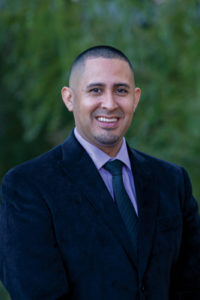
With a background in communications and public relations and through his work as a marketing coordinator with Sonoma Clean Power in Santa Rosa, he was able to address the public during city council events. “There’s a lot of public speaking involved that goes into this role and having city council meetings twice a month, ribbon cuttings, those sorts of skills are necessary to have for this type of work. You know, you’re speaking in front of people and you’re speaking to different groups,” says Linares. “One thing that I’ve learned is that people do care what you have to say, including your opinion and your voice…it matters to people.”
Linares spent time visiting Rohnert Park after he graduated high school in Sonoma. Years later, after he was married, and with a baby on the way, he returned to Rohnert Park and purchased a home. Once they settled into their new home, they began discussing the possibility of Linares running for a seat on the city council. District elections were coming up, he says, and he was ready to give it a go.
Linares ran for the city council because he didn’t see any single representation of people of color. “We started to have the conversation, ‘We have a new daughter. We live in this community,’” says Linares. “District elections allow for representation for the possibility of someone who looks like me and my family, people of color, and I thought that our council should be representative of its constituents. I wanted representation for people of color on the council. To bring a cultural lens to important discussions and decisions being made.” In Rohnert Park, he adds, there is a 30% Latino community, but in his specific district, they have a 43% BIPOC (Black Indigenous People of Color) population, so he wanted representation of color in the city council.
Linares credits his wife, Monica, for giving her full support to him while he ran for office. “I think for me, it was like, my wife and I decided that we should get involved. And I say we because I needed her full support. She’s a great, moral compass for me and that’s why we got involved because I wanted to see change for the better and I thought I could help bring that,” says Linares.
One hot topic this past summer was the ban on the sale of fireworks in Rohnert Park due to severe drought conditions and the number of wildfires plaguing the county in recent years. The city council also canceled the Fourth of July fireworks show. Then on the evening of July 4, Linares was at home with his family when a neighbor alerted him that his garbage bin was on fire. The fire department quickly arrived to extinguish the fire. Linares believes the fireworks were placed in his garbage bin as an act of vandalism in retaliation to his vote to prohibit the sale and use of fireworks in the city. Measure D was placed on the ballot for Rohnert Park for the Sept. 14 Special Election in Sonoma County; the measure eventually passed, which now prohibits the sale and use of fireworks in Rohnert Park. “I felt my ‘yes’ vote on a preventative measure was appropriate,” says Linares.
Just what does Linares hope to see happen in Rohnert Park in the next five to 10 years? A few important issues come to mind, including climate change and homelessness. “My hope is that we can continue to make meaningful progress on the goals that we set forth this year including combating the climate crisis, taking action on homelessness, making progress on our police trust and accountability, and more,” he says. “The hope is that we can accomplish our goals while ensuring all our residents feel included in the process.”
Skylaer Palacios
Councilmember
Healdsburg City Council
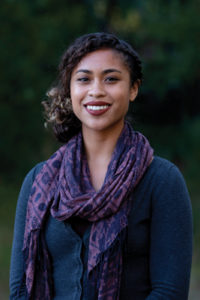
Elected last November to her first term on the Healdsburg City Council at the age of 25, Palacios says her mother inspired her to get involved in helping her community. As a young girl, her mother took her to help volunteer at food pantries and at other businesses. “She started taking me out to volunteer when I was pretty young—8 years old. I was raised with that desire to want to help my community,” says Palacios. Currently, she’s on the board at Healdsburg Center for the Arts, which recently moved to a new location. She volunteers her time there, which has included helping jury events and mentoring youth.
As a council member, Palacios says that it’s imperative to create relationships with the community and to understand what their needs are. If they have suggestions for change, she intends to address them during council sessions. “I’d say first and foremost, it’s creating relationships with members of the public—whether that’s with individual people or organizations that represent the public—and then recognizing what their needs are or suggestions for change are,” says Palacios. “As their representative, it’s important that if someone asks me a question, I try my best to either answer it or get one of our staff members to give their input on it. And if it’s something that’s related to a council decision, I try to definitely address it or ask the public’s questions during the council session.”
What also inspired Palacios to get involved with the Healdsburg City Council was for her love of her community and because she saw there was a lack of representation for people of color. “I’d say the love for my community. I moved to Healdsburg during COVID because I had lost my job and just witnessed all the social dilemmas that were going on at the time, especially Black Lives Matter,” she says. “Seeing this awareness in my community of the lack of importance that black and colored lives had had up until this moment and kind of recognizing that was such a moment that I had never experienced before, nor did I think I’d see it until it happened. So if it wasn’t for that, I may not have run because there was really never any moment in time that I felt as if my voice specifically mattered on any of the issues that affected our community.”
During the early days of settling into her councilmember position, she recalls some challenges she has faced, especially during her campaign last year. Because she is young and Afro-Latina, many people didn’t believe she had the right qualifications to be a council member. Some people believed I was not qualified, she recalls. “I think back to my Miss Sonoma County experience where I was around and spoke with elected officials all the time. I went to the Sonoma Business Alliance meetings every month,” says Palacios. “I was in these meetings looking at these different policies that are going to affect the environment or business, so relatively speaking, I have a decent amount of experience and even to an extent, more experience than some candidates have when they run for office. Just because I’m Black, Latina and young, some people assume I’m not experienced or not intelligent, or not cut out for what is usually a male-dominated position. I’m hoping to prove them wrong, but in the end, it doesn’t matter. I’m going to do my best for my community.”
One year later, Palacios proved she has the right qualifications to be on the city council. She is working to identify and remove obstacles within the local government that contribute to the marginalization of people of color. Also, she says that she and another fellow council member, Osvaldo Jimenez, created an ad-hoc committee and released a Request forQualifications for an equity consultant. By doing this, her hope is that the consultant will help the city identify issues of equity and to create a plan to help address them.
“There’s like a lot of examples of that, but one specifically that I know that I keep trying to push—even though it’s kind of difficult right now—are things like water rebates. For example, in Santa Rosa’s data, they have single-family household use of water versus multi-family use of water. When we received the presentation of the Urban Water Management Plan, we didn’t separate that data point and so because we know that there’s a larger proportional population of Latino people in multi-family housing versus single-family housing, there’s that data point that we don’t know,” says Palacios. She is looking into how this problem can be resolved; however, she believes that more rebates should be given to multi-family housing, who are already using less water and have more economic difficulty because it would be more fair and equitable. “The issue with the rebates being more accessible to people with a higher income is inequitable and contributes to the income gap,” she says. “While low-income residents may be eligible for the CARE program for reduced utility rates, less of them can afford money out of pocket that can then be reimbursed through the rebates and lower-middle-income people may not be able to access them either, nor can they be enrolled in the CARE program.” On Sept. 13, Palacios was accepted into the Water Education for Elected Leaders program. “I am looking forward to participating and learning more about water and environmental policies that could help our community.”
What are Palacios hopes for Healdsburg in the future? “I’m pretty excited about things that we’ve done just in the last little bit, like the Universal Basic Income and those kinds of things. We’ve even passed housing developments that I think will be great. As for short-term goals, I’d say is what I’m already doing with the equity commission,” says Palacios. She added that she would also like to create more empathy, more ways to speak about people’s individual experiences and their experience with injustice. As for long-term goals, she hopes to continue to work on bringing economic diversity to the community. Ultimately, she’d like to see Healdsburg create more opportunities—both for housing and for business for younger generations—to continue fostering a robust, healthy community.
Author
-

From an early age, Jessie knew she loved to write. She developed more of an interest in writing when she enrolled in her first journalism class—magazine writing—at SRJC. Born and raised in Healdsburg, Jessie specializes in writing profiles and feature stories, and has contributed to various publications, including SRJC’s The Oak Leaf, Sonoma State STAR, The Press Democrat and LAist.com. In her downtime, she enjoys listening to music, going for walks and spending time with family and friends.
View all posts



